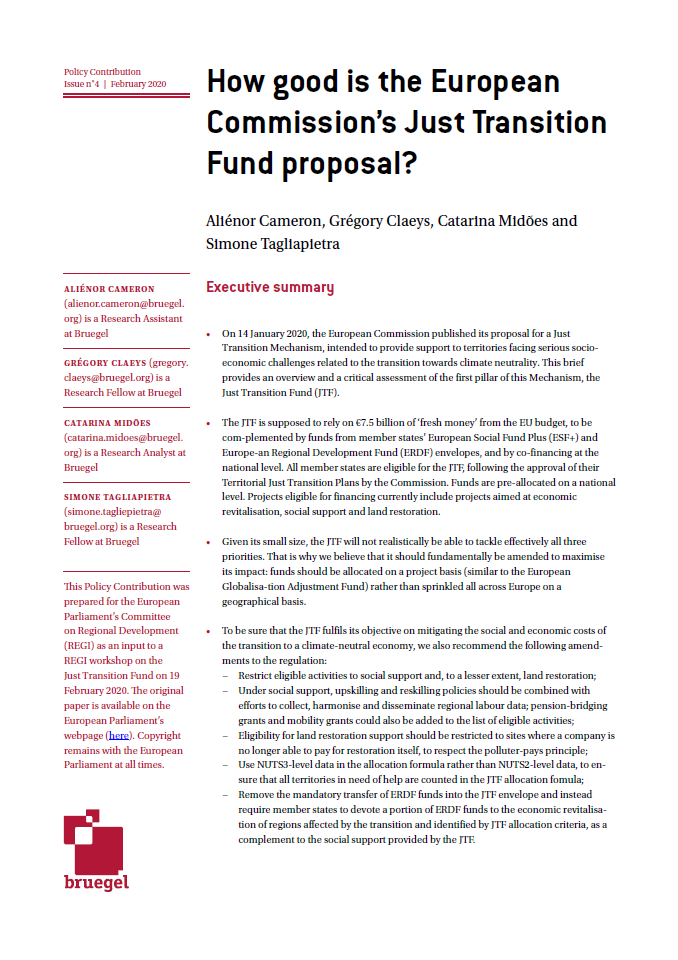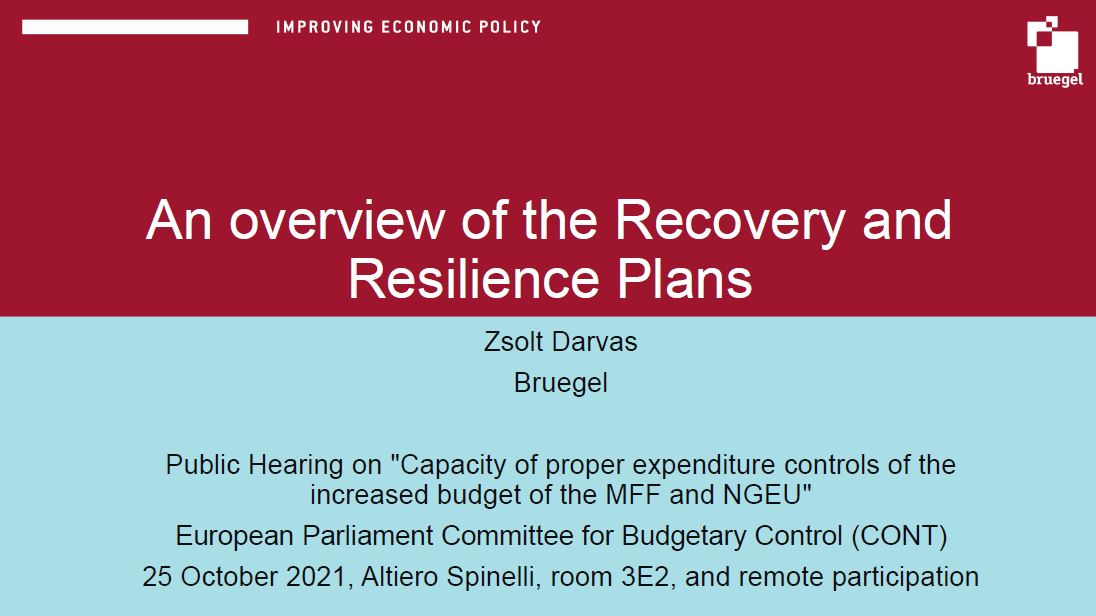Policy Contribution
How good is the European Commission’s Just Transition Fund proposal?
On 14 January 2020, the European Commission published its proposal for a Just Transition Mechanism, intended to provide support to territories facing serious socioeconomic challenges related to the transition towards climate neutrality. This brief provides an overview and a critical assessment of the first pillar of this Mechanism, the Just Transition Fund (JTF).
This Policy Contribution was prepared for the European Parliament’s Committee on Regional Development (REGI) as an input to a REGI workshop on the Just Transition Fund on 19 February 2020. The original paper is available on the European Parliament’s webpage (here). Copyright remains with the European Parliament at all times.
- The JTF is supposed to rely on €7.5 billion of ‘fresh money’ from the EU budget, to be complemented by funds from member states’ European Social Fund Plus (ESF+) and European Regional Development Fund (ERDF) envelopes, and by co-financing at the national level. All member states are eligible for the JTF, following the approval of their Territorial Just Transition Plans by the Commission. Funds are pre-allocated on a national level. Projects eligible for financing currently include projects aimed at economic revitalisation, social support and land restoration.
- Given its small size, the JTF will not realistically be able to tackle effectively all three priorities. That is why we believe that it should fundamentally be amended to maximise its impact: funds should be allocated on a project basis (similar to the European Globalisation Adjustment Fund) rather than sprinkled all across Europe on a geographical basis.
- To be sure that the JTF fulfils its objective on mitigating the social and economic costs of the transition to a climate-neutral economy, we also recommend the following amendments to the regulation:
− Restrict eligible activities to social support and, to a lesser extent, land restoration;
− Under social support, upskilling and reskilling policies should be combined with efforts to collect, harmonise and disseminate regional labour data; pension-bridging grants and mobility grants could also be added to the list of eligible activities;
− Eligibility for land restoration support should be restricted to sites where a company is no longer able to pay for restoration itself, to respect the polluter-pays principle;
− Use NUTS3-level data in the allocation formula rather than NUTS2-level data, to ensure that all territories in need of help are counted in the JTF allocation fomula;
− Remove the mandatory transfer of ERDF funds into the JTF envelope and instead require member states to devote a portion of ERDF funds to the economic revitalisation of regions affected by the transition and identified by JTF allocation criteria, as a complement to the social support provided by the JTF.













